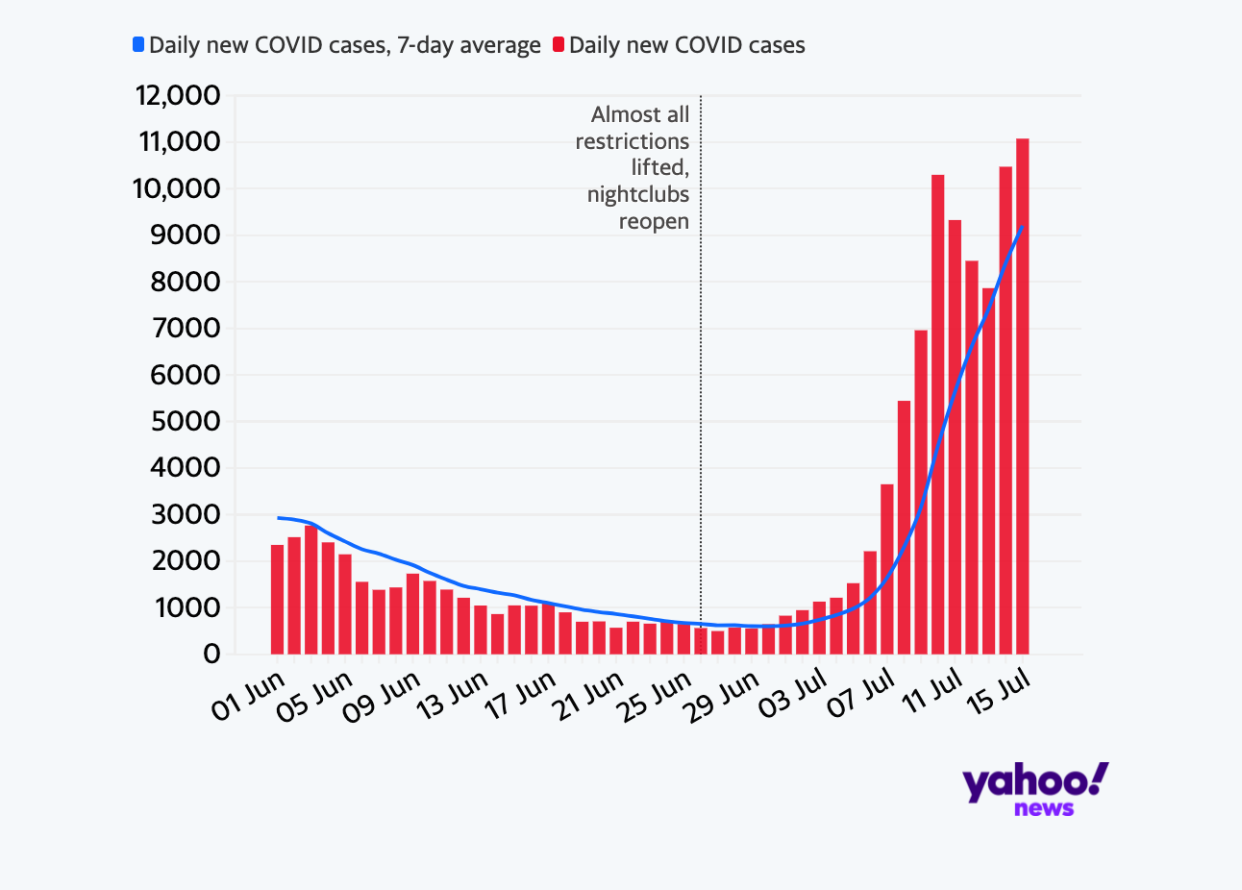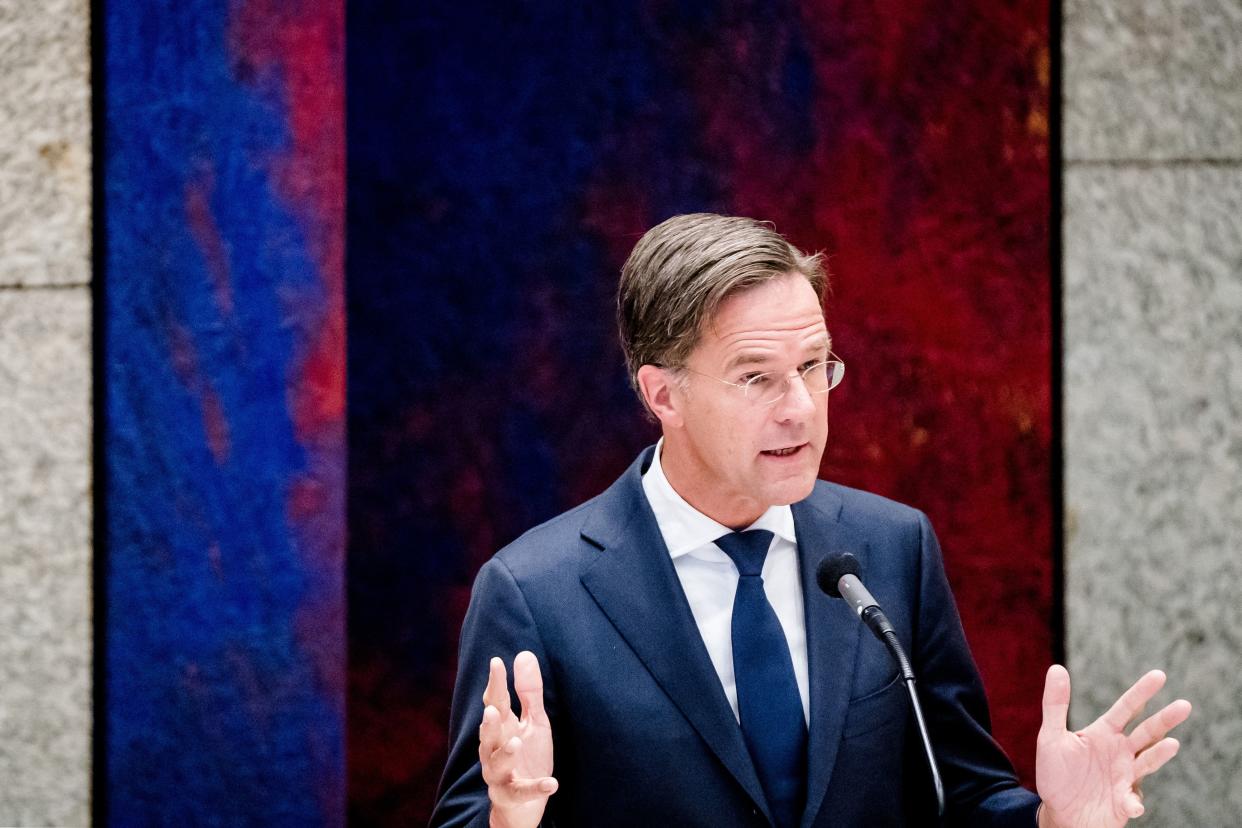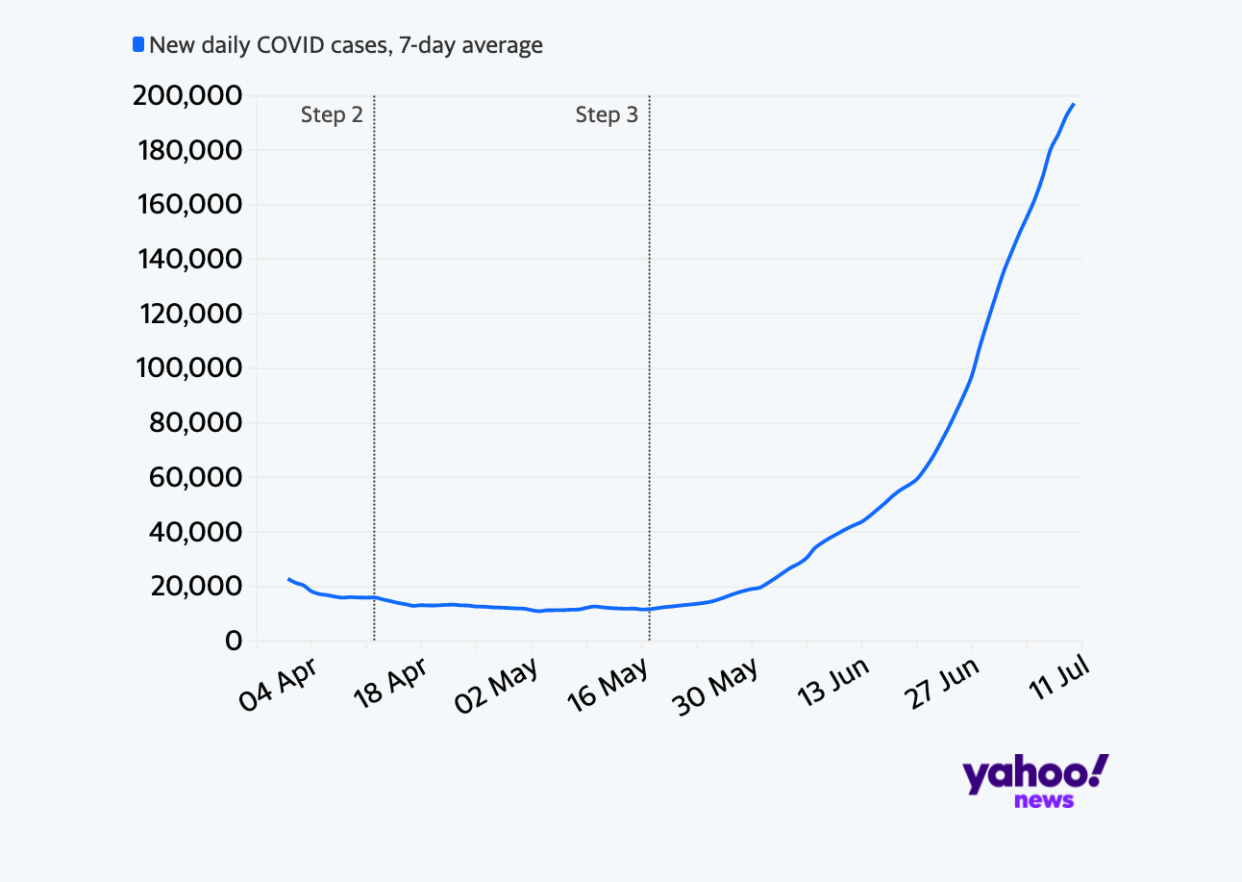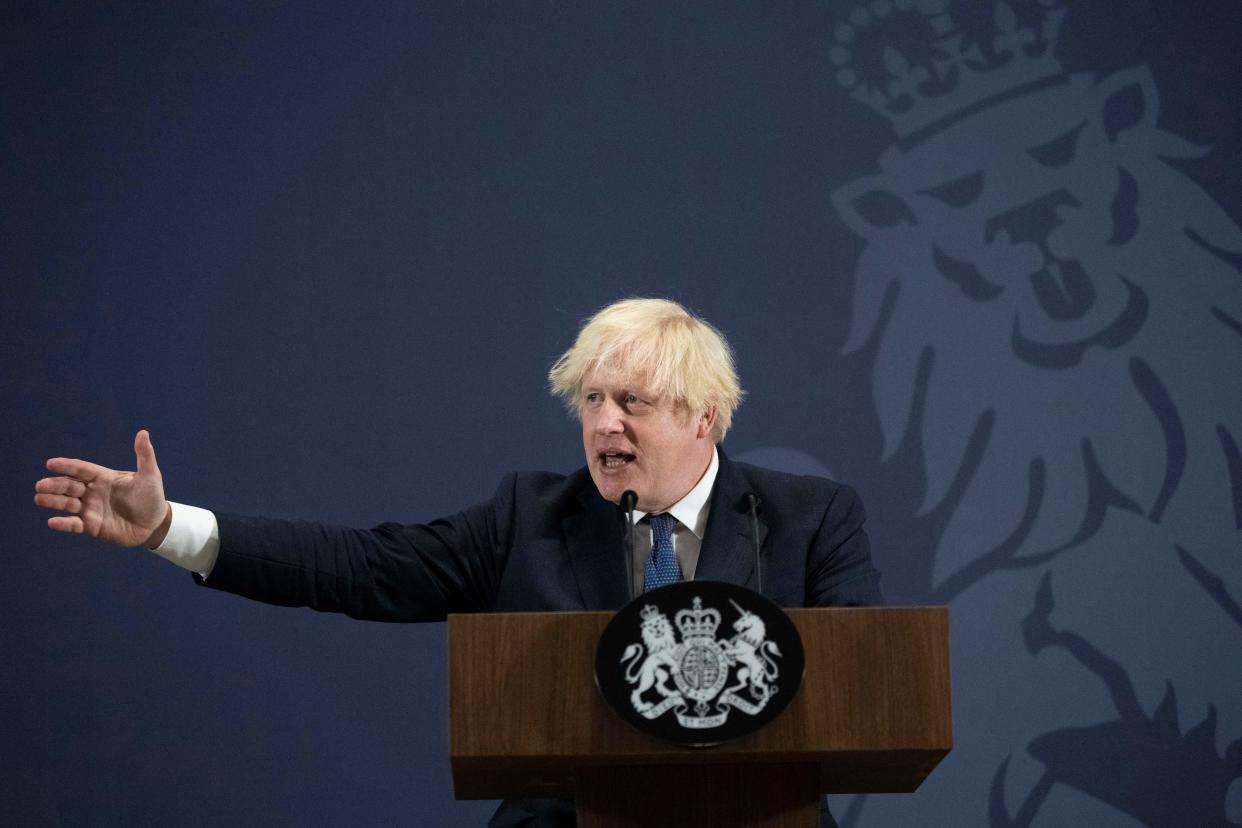Netherlands sees ‘absolutely unprecedented’ surge in Covid cases after reopening nightclubs

The Netherlands has seen an “absolutely unprecedented” surge in coronavirus cases following the government’s decision to lift most restrictions last month.
According to Oxford University’s Our World in Data website, the country has suffered a 769% biweekly growth in infections.
Edouard Mathieu, head of data at the organisation, said: “The current growth rate of confirmed cases in the Netherlands is absolutely unprecedented in this pandemic.”
On 26 June, the Netherlands lifted most restrictions, allowing “almost everything with 1.5-metre distancing”.
As part of this, nightclubs were also allowed to reopen without social distancing, as long as revellers had a COVID entry pass proving vaccination or test status.
What followed, though, was a huge surge in daily cases, as demonstrated by the following chart.

Such was the country’s apparent calm around the Covid situation, the i newspaper reported appointments at a vaccine site in Amsterdam were cancelled because two music festivals were being held at the site.
The subsequent rise in cases, though, forced an astonishing U-turn from the government.
On 10 July, exactly 14 days after the most rules were lifted, restrictions were reimposed.
In a government press release beginning with the words “no choice”, it was announced nightclubs must close again, while the COVID entry pass system – which had also removed the need for social distancing in bars and restaurants – was also suspended until next month.
'Poor judgement, I'm sorry' – Dutch PM
Prime minister Mark Rutte apologised for the U-turn on Monday and even admitted “poor judgement”.
"What we thought would be possible, turned out not to be possible in practice," he told reporters.
“We had poor judgement, which we regret and for which we apologise."

On Wednesday, with cases continuing to surge, Rutte took the restrictions further and reintroduced work-from-home guidelines.
On Thursday, according to the Worldometers website, 10,976 cases were recorded in the Netherlands, the highest in a day since 25 December last year.
While the country’s Covid death rate is extremely low – three were recorded on Thursday – the government said “we cannot discount the possibility that hospital admissions will again increase in the weeks ahead”.
What can England learn from this?
Ministers confirmed earlier this week that they will end England's lockdown and drop virtually all legal mitigations against the virus on Monday.
There is a key difference, though, between the pattern of case rates in both countries. The chart below shows how infections were falling when the Netherlands reopened on 26 June at "step 4" of its road map.

In England, however, case rates are surging even before all restrictions are lifted on Monday.

In terms of vaccinations, England has double jabbed a higher proportion of its total population at 52.5%, though the Netherlands is not massively far behind at 43.3%.
Given what happened in the Netherlands after reopening, it's no wonder Prof Chris Whitty, the UK's most prominent Covid scientist, has warned the number of people in hospital with the virus could reach “quite scary” levels within weeks.
On Thursday, England's chief medical officer said the nation is “not out of the woods yet”, just hours after Boris Johnson declared it was “highly probable” the worst of the pandemic is over.
Prof Whitty said at a webinar hosted by the Science Museum: “I don’t think we should underestimate the fact that we could get into trouble again surprisingly fast.”
He added: “This has got a long way to run in the UK, and it’s got even further to run globally.”

International experts have even said Johnson's plan to unlock on Monday is a threat to the wider world as it could provide a fertile breeding ground for vaccine-resistant variants of the virus.
Last week, however, Prof Whitty also said he had “quite a strong view” lifting lockdown in the summer has advantages over autumn.
He said autumn will be “when schools are going back and when we’re heading into the winter period when the NHS tends to be under greatest pressure for many other reasons”.
Prof Neil Ferguson, the scientist whose modelling convinced the PM to impose the first lockdown in March last year, also said last week that lifting lockdown, while a "gamble", is "justifiable".
He said he is "reasonably optimistic, but policy will have to remain flexible".
Johnson said on Thursday: "With every day that goes by we build higher the wall of vaccine acquired immunity.”


